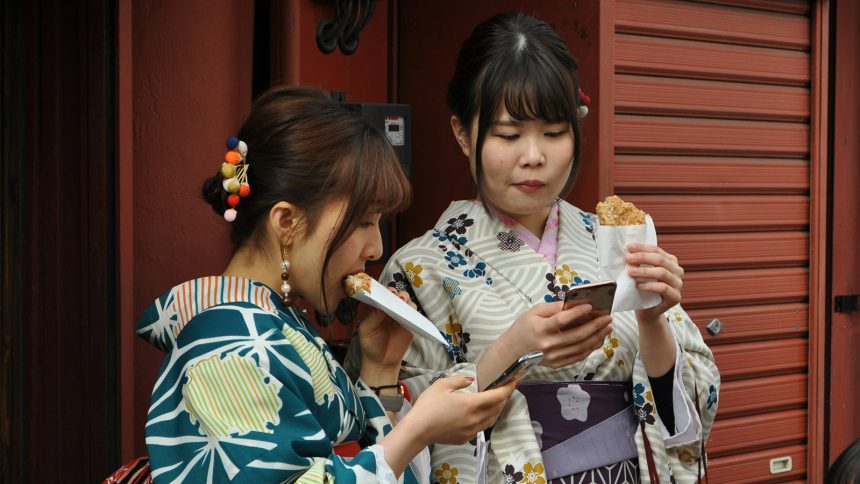The Japanese city of Toyoake wants to limit citizens’ use of most modern communication devices, including tablets and smartphones, to just two hours per day in an ambitious new proposal.
Screentime is a major concern in the age of social media and smartphones. In fact, many schools throughout the United States have banned students from using their phones during the day to help combat distractions in the classroom for the 2025 school year.
The global average amount of daily screentime for people aged 16 – 64 years is a staggering six hours and 40 minutes — but a city in Japan is looking to propose a law that would drastically limit the time spent in front of a screen for all of its residents.
Japanese city wants to limit screentime to 2 hrs a day
Toyoake, located in Aichi Prefecture, Japan, boasts a population of just under 70,000 citizens, all of whom would be subject to a municipal decree being brought forward at the next city council meeting.
Named the ‘Ordinance Regarding the Promotion of Appropriate Use of Smartphones and the Like,’ this proposal aims to drastically limit the amount of screentime for anyone, not just kids, to a mere two hours per day.
Toyoaka, a city in Japan, is drafting an ambitious ordinance that would limit recreational time on any device to just two hours per day for all residents, not just kids.
It’s not just smartphones being targeted by the ordinance; as stated in its title, the proposal is going after most modern devices like tablets, PCs, and even gaming consoles. At present, the draft says that children shouldn’t use any electronics past 9 PM, while teens can extend their screentime to 10 PM.
However, this edict thankfully grants exceptions for work-related or educational use, meaning that students can use devices for school, and employees can still use their computers to work.
As reported by Japanese news outlet SoraNews24, the proposal argues that smart devices “disrupt lifestyle rhythms, adversely impact health, and reduce the amount of conversation between family members.”
The mayor of Toyoake, 56-year-old Masafumi Koki, says he wants residents to “consider the societal issue of their appropriate use” — but locals have already pointed out several issues with the edict in advance.
 Unsplash.com: Alan W
Unsplash.com: Alan WThe ordinance would permit reading a physical book after two hours of screentime – but a Kindle would be a no-go.
For example, if a resident spends two hours on the computer, but then reads a paperback book, that would be acceptable; but if they picked up their Kindle to decompress with a book before bed after two hours on their PC, that would be banned.
Additionally, the ordinance reportedly says nothing about the amount of time spent watching TV, but pointedly goes after video sites like YouTube.
This isn’t the first time a Japanese city has imposed such limits on its citizens. In 2020, the prefecture of Kagawa capped screentime for children under the age of 18 at 60 minutes per day on weekdays and 90 minutes per day on weekends.
Japan’s average screentime is already lower than much of the Western world. While America leads the charge at around seven hours per day, Japanese residents spend an average of just four hours and 25 minutes on screens daily.













